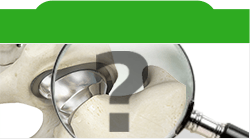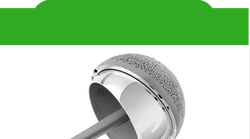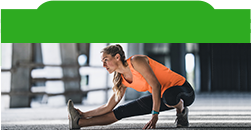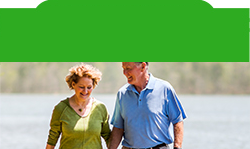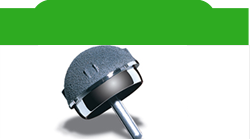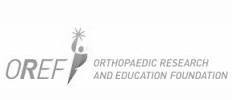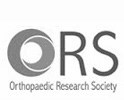Post-op FAQ
Q. Do I need a special card to tell the airport screeners that I have a metal implant?
A. You do not need a card to get through the airport; however, your implant will likely set off the metal detector. In this day and age, you will need to be hand-screened, so please leave extra time when you travel. We do provide an implant card for your convenience, which will be available postoperatively.
Q. Can I get an MRI?
A. Yes, MRI are perfectly safe with a hip resurfacing implant. An MRI in the area of the hip implant, however, will not yield good pictures because of artifact created by the metal. MRI of a hip resurfacing should be performed at an facility with experience with techniques used to suppress the metal artifact.
Q. When can I shower?
A. You can shower as soon as you get home if you have dissolvable stitches; if I felt that you would be better served with staples, then you will have completely cover the staples before showering, or wait until they are removed (7-10 days postop). With either stitches or staples, do not immerse the incision in water, and just pat it dry
Q. How long should I use the pain medication?
A. This is different for each patient; some are able to use Tylenol or Advil after you leave the hospital, and others require pain medication as needed for 2-3 weeks. A general rule is that you should try to decrease your use of these medications as time passes.
Q. When should I go to outpatient therapy?
A. I like to see you in follow up before you go as an outpatient; that way I can tailor your PT to what you need. However, if you feel that it is essential that you begin outpatient PT right away, you can call my office and we will provide a prescription and a list of places.
Q. When can I drive?
A. You should not drive as long as you are taking narcotic pain medication. If it is your left hip, you can resume driving when you feel your reaction times are back to normal (about 3 weeks). If it is your right hip, I would like to evaluate you prior to your return to driving.
Q. I feel "clicking" inside the hip, is this normal?
A. The clicking is a result of the soft tissue (capsule) moving across the front of the hip, or the metal parts coming into contact with one another. This sensation usually diminishes as your muscles get stronger.
Q. I am experiencing a lot of swelling, is this normal?
A. Fluid can accumulate in the legs due to the effect of gravity. It is not unusual that you didn't have it in the hospital, but it got worse when you went home (because you are doing more!) To combat this, you should elevate your legs at night by lying on your back and placing pillows under the legs so that they are above your heart. There are also TEDS stocking (the white stockings from the hospital) that you can put on during the day - have someone help you on with them in the morning, use them during the day, and then take them off at night. If you did not get the TEDS from the hospital, you can purchase knee high, medium (15-20 mm Hg) compression surgical stockings at most drug stores.
Q. My thigh, knee, and calf hurt. Is that normal?
Yes, your leg is twisted completely around during the surgery, so it is expected that you have soreness up and down your leg.
Q. Can I work out in the gym?
A. You can go to the gym and resume upper body workouts, as long as the hip is in a non-loaded position (you should be sitting, not standing, when using weights).
Q. When can I return to work?
A. It depends on your occupation. It is never a mistake to take more time off in the beginning of your recovery, as it will give you time to focus on your hip. I recommend taking at least 3 weeks off for a single resurfacing, and 6 weeks for a double. Keep in mind that you may still be using crutches and it may be difficult to commute.
Q. When can I go to the dentist?
A. Please wait until 3 months after surgery, as the hip is still healing and there is increased blood flow to this area.
Q. Can I travel?
A. In general, I like to see you before you fly. If you are traveling by car, you should be sure to take frequent breaks so that you don't feel too stiff when getting up. On an airplane, I like you to wear compression stockings (if within 1 month postop), and take a couple of walks during the flight. Having an aisle and bulkhead seat will help you get more space.
Q. Should I be taking any medications or supplements for bone health after a resurfacing?
A. Yes, I recommend that everyone take calcium and vitamin D to help maintain bone strength. Generally 1000-1500 mg of calcium citrate and 400 IU of Vitamin D are adequate. Occasionally I will also prescribe a medication to help promote bone strength.
The Center for Hip Pain & Preservation
541 East 71st Street
New York, NY 10021
 Click here for Driving Directions
Click here for Driving Directions



